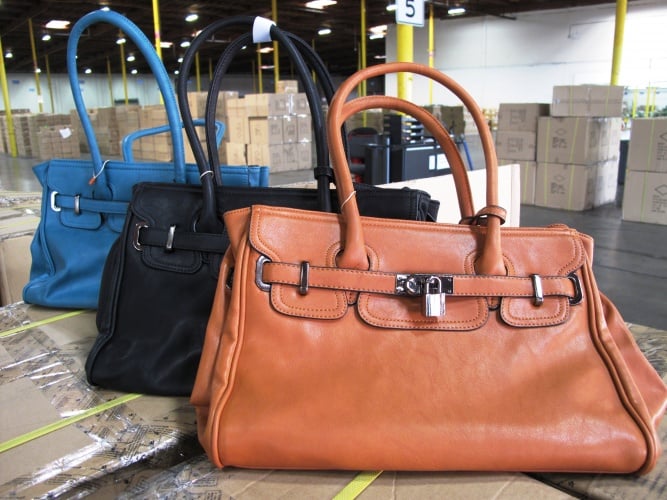‘Unhackable’ Danish anti-counterfeiting system is built on sand
Scientists at the University of Copenhagen have developed a new marking system using patterns of sand, which they claim could potentially put an end to counterfeit goods.

In 2013, 1,500 high-fashion counterfeit leather handbags with a potential street value of $14m were seized in Los Angeles (Credit: Jaime Ruiz/US Customs and Border Protection)
The optical authentication system uses sand doped with three rare earth lanthanides, each of which glows under a different wavelength of light. Separate buckets of sand are doped with europium, terbium and dysprosium, with the three buckets then mixed together in a single vessel.
A piece of ‘tape’ is dipped in the vessel to create a unique pattern with thousands of grains of sand, but which measures just a few millimetres wide. This fingerprint can then be embedded in leather or glass or milled into metal.
When a manufacturer attaches the marking to an item, the imprint is photographed at different wavelengths. The resulting patterns of illuminated europium, terbium and dysprosium are then combined in a single image which is digitally stored in the manufacturer’s database. Using a proprietary reader and software, the digital key can then be used to authenticate the physical key. According to the researchers, the encoding capacity of the system is 6 × 10104, making it virtually impossible to successfully counterfeit. The work is described in Science Advances.
Register now to continue reading
Thanks for visiting The Engineer. You’ve now reached your monthly limit of news stories. Register for free to unlock unlimited access to all of our news coverage, as well as premium content including opinion, in-depth features and special reports.
Benefits of registering
-
In-depth insights and coverage of key emerging trends
-
Unrestricted access to special reports throughout the year
-
Daily technology news delivered straight to your inbox










Water Sector Talent Exodus Could Cripple The Sector
Well let´s do a little experiment. My last (10.4.25) half-yearly water/waste water bill from Severn Trent was £98.29. How much does not-for-profit Dŵr...